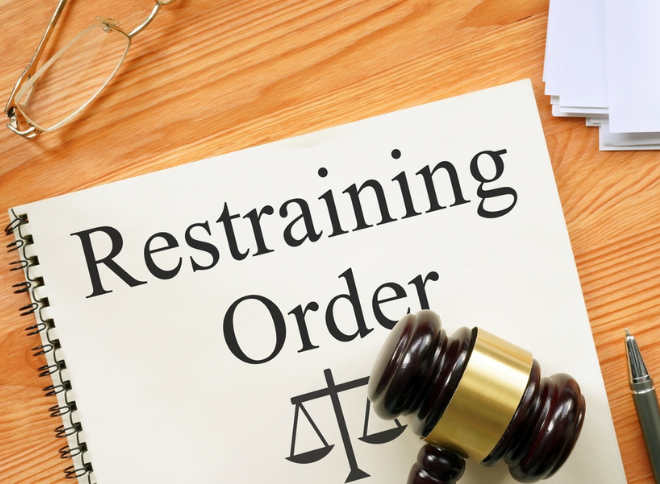Want to know how long restraining orders last in Florida? The court system grants restraining orders with time frames that are relevant to the situation. They could be in place temporarily for a short period of time or be court-ordered for much longer. When dealing with a restraining order, it is important to understand the legal implications, how long the different types typically last, what factors will affect their duration, and how a restraining order could be modified.
Understanding Restraining Orders and Their Duration
Restraining orders are legally binding court orders put in place to protect the plaintiff and prevent the defendant from performing a threatened action. They are typically granted to protect someone against domestic abuse, harassment, stalking, sexual assault, or child abuse.
How long do restraining orders last in Florida? If there is imminent danger, an emergency or short-term one can be granted that will last a certain number of days until a hearing takes place. Depending on the situation, a long-term restraining order may be granted that can last for years.
Under Florida restraining order laws, violating a restraining order has serious consequences, typically including arrest and other penalties. It is highly recommended to have legal representation.
Types of Restraining Orders and How Long They Last
There are basically two types of restraining orders available in Florida.
Temporary (ex parte) injunctions: granted when there is an immediate and present danger and take effect as soon as the person is served and will last until the full hearing takes place – at the most up to 15 days (unless the judge grants a continuance for “good cause”).
Final injunctions: granted by the judge after the case is presented at the full hearing. The judge can decide on a specific timeline/duration or may not include an expiration date. The average duration of a restraining order is approximately two years.
Important note: If the restraining order does not include an expiration date, either the victim or the abuser can request to either modify or terminate it.
Factors Affecting the Duration of Restraining Orders
When considering how long restraining orders last, it is necessary to understand the varying factors influencing the duration.
One of the primary factors is the severity of the situation. Any history of violence will be considered, as well as the severity of the violence – including specific injuries and/or threats of harm. Evidence presented for the initial order and the full/final hearing is important.
Another factor is the judge’s discretion. The judge can determine how long the restraining order will last, including whether it will expire.
Filing a Restraining Order in Florida: A Step-by-Step Guide
If you are concerned for your safety and want to know, “How do I get a restraining order in Florida?” we are here to help.
How To File A Restraining Order In Florida
First, determine which type of restraining order is appropriate for your situation. Injunctions are available for domestic violence, repeat violence, dating violence, sexual violence, and stalking.
Next, determine where you will file. It can be completed through the state’s electronic filing system, mailed to your county Clerk of Courts, or many counties allow you to deposit the petition and documents in a drop box at the courthouse.
Then you will need to obtain and complete the petition and support documentation through the Florida Courts and file.
Collecting Evidence and Documentation
Gathering proof and evidence is important to support the restraining order request. There needs to be more than an accusation. The types of evidence that are relevant and effective include:
- Witnesses to threats or violence
- Messages received, such as voice mails, texts, emails, or other communications that support the restraining order request
- Medical records related to violent incidents
- Police reports
Important note: witnesses and documents can be subpoenaed if needed.
Completing the Necessary Forms
The forms should be completed comprehensively. The information should be accurate and factual. To ensure accuracy, carefully review each section, one at a time. An attorney can help to build the strongest packet of information for the court.
Attending Court Hearings and Presenting the Case
A final hearing will be set if a temporary injunction is granted (or denied). During the hearing, the facts of the case should be presented thoroughly and convincingly. Any witnesses should be questioned professionally.
Legal representation provides experience in the courtroom to present the case for a restraining order as strongly as possible.
The judge will then rule on the final injunction.
Understanding Florida’s Restraining Order Laws
The state legislature has enacted Florida restraining order laws that serve to protect individuals and families in danger of violence. These statutes serve as the legal framework for enforcing the injunctions, including individual rights and processes involved with the Clerk of Courts.
Overview of Florida’s Domestic Violence Laws
Florida Statute 741.30(1)(a) contains comprehensive information on regulations that pertain to domestic violence, which often involves restraining orders.
Florida Statute 914.24 contains comprehensive information regarding civil action to restrain the harassment of a victim or witness.
These are the primary statutes related to domestic violence that the courts and attorneys use when working with these types of cases.
Legal Rights and Protections
You have a legal right to be protected from violence, abuse, and harassment. Domestic violence and other injunctions have powerful legal protections regarding contact and communications. They also have certain parameters, so it is important to understand which petition you would need.
Restraining order laws in Florida provide strong, swift protections when granted and must be obeyed by the abuser. They are legally obligated to follow the parameters of the injunction or face serious consequences, such as arrest, jail time, and fines.
Navigating the Complexities of Restraining Orders in Florida
Knowing what legal resources are available is important when going through difficult and dangerous times. If you’ve been considering the question, “How long do restraining orders last in Florida?” understand that swift temporary injunctions are available before a full hearing for potential long-term restraining orders.
The legal aspects of obtaining a restraining order, gathering evidence, and presenting a case to a judge can be daunting. You deserve and have the right to legal assistance.
If you are dealing with a restraining order, seek legal advice and expert support.
Dean Tsourakis is experienced in restraining orders and navigating the process through the Florida Courts. Contact Dean Tsourakis today.
on Jul 10, 2023




